
The spaghetti Western is a broad subgenre of Western films produced in Europe. It emerged in the mid-1960s in the wake of Sergio Leone's filmmaking style and international box-office success. The term was used by foreign critics because most of these Westerns were produced and directed by Italians.

Sergio Leone was an Italian filmmaker, credited as the pioneer of the spaghetti Western genre. He is widely regarded as one of the most influential directors in the history of cinema.

A Fistful of Dollars is a 1964 spaghetti Western film directed by Sergio Leone and starring Clint Eastwood in his first leading role, alongside Gian Maria Volonté, Marianne Koch, Wolfgang Lukschy, Sieghardt Rupp, José Calvo, Antonio Prieto and Joseph Egger. The film, an international co-production between Italy, West Germany and Spain, was filmed on a low budget, and Eastwood was paid $15,000 for his role.
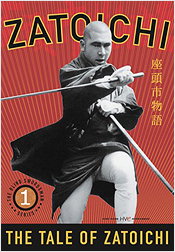
Zatoichi is a fictional character created by Japanese novelist Kan Shimozawa. He is an itinerant blind masseur and swordsman of Japan's late Edo period. He first appeared in the 1948 essay Zatoichi Monogatari (座頭市物語), part of Shimozawa's Futokoro Techō series that was serialized in the magazine Shōsetsu to Yomimono.
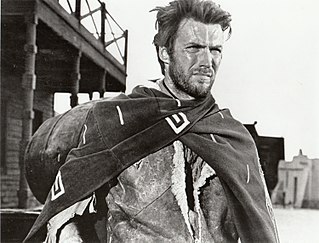
The Man with No Name is the antihero character portrayed by Clint Eastwood in Sergio Leone's "Dollars Trilogy" of Italian Spaghetti Western films: A Fistful of Dollars (1964), For a Few Dollars More (1965), and The Good, the Bad and the Ugly (1966). He is recognizable by his poncho, brown hat, tan cowboy boots, fondness for cigarillos, and the fact that he rarely speaks.

Allen Klein was an American businessman whose aggressive negotiation tactics affected industry standards for compensating recording artists. He founded ABKCO Music & Records Incorporated. Klein increased profits for his musician clients by negotiating new record company contracts. He first scored monetary and contractual gains for Buddy Knox and Jimmy Bowen, one-hit rockabillies of the late 1950s, then parlayed his early successes into a position managing Sam Cooke, and eventually managed the Beatles and the Rolling Stones simultaneously, along with many other artists, becoming one of the most powerful individuals in the music industry during his era.

The Ostern is a film genre created in the Soviet Union and Eastern Bloc as a variation of the Western films. The word Ostern is a portmanteau derived from the German word Ost, meaning "East", and the English word western. Two subgenres may be distinguished :
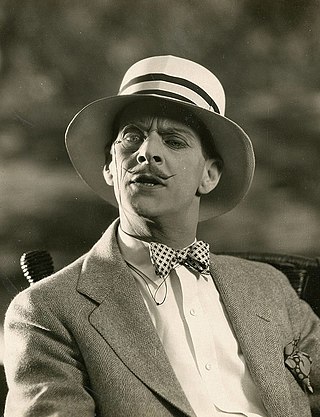
William Crosby Percy Austin was an English character actor. He was the first actor to play Alfred in a Batman adaptation.
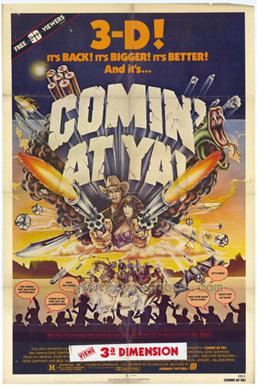
Comin' at Ya! is a Spanish-American 3D Western film, featuring Tony Anthony, Victoria Abril and Gene Quintano and directed by Ferdinando Baldi.
"Heavy Music" is a song first released as a single by Bob Seger & the Last Heard. Two different vocal takes of the song were released together on either side of the single, with the names "Heavy Music Part 1" and "Heavy Music Part 2". An eight-minute fourteen-second-long live version of the song is featured on the album Live Bullet with the Silver Bullet Band.
Gene Quintano is an American screenwriter, actor, film producer and director. He is best known for writing sequels to the film Police Academy and directing the western Dollar for the Dead and action parody Loaded Weapon 1, both starring Emilio Estevez.
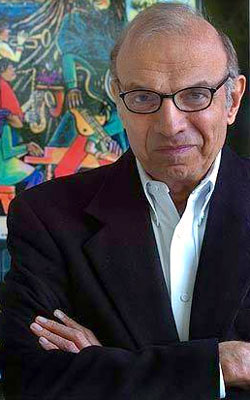
Saul Swimmer was an American documentary film director and producer best known for the movie The Concert for Bangladesh (1972), the George Harrison-led Madison Square Garden show that was one of the first all-star benefits in rock music. He was also a co-producer of The Beatles' 1970 documentary Let It Be.

Treasure of the Four Crowns is a 1983 action adventure film directed by Ferdinando Baldi and starring Tony Anthony, Ana Obregón, Gene Quintano, and Francisco Rabal. Anthony and Quintano also served as producers and screenwriters. The musical score was composed by Ennio Morricone.

Pete, Pearl & the Pole, also known as 1931: Once Upon a Time in New York, is a 1973 Italian-American gangster film directed by Luigi Vanzi and starring Tony Anthony.
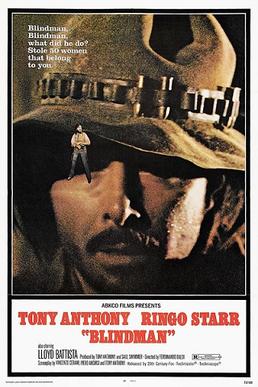
Blindman is a 1971 Spaghetti Western film directed by Ferdinando Baldi and co-written and co-produced by Tony Anthony. The film's protagonist, played by Anthony, is an homage to Kan Shimozawa's Zatoichi character: a blind transient who does odd jobs and is actually a high-skilled warrior.
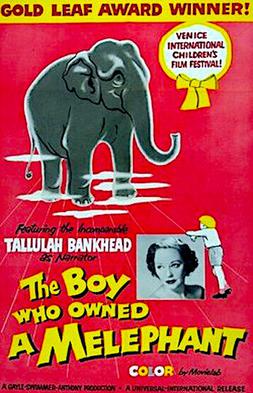
The Boy Who Owned a Melephant is a 1959 American short film directed by Saul Swimmer and featuring Tallulah Bankhead as narrator.
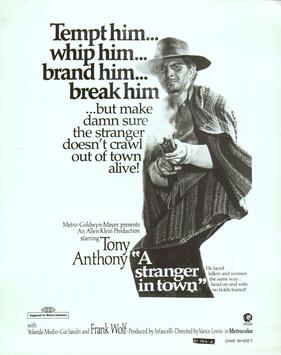
A Stranger in Town, released in the UK as For a Dollar in the Teeth, is a 1967 Italian-American Spaghetti Western film directed by Luigi Vanzi.
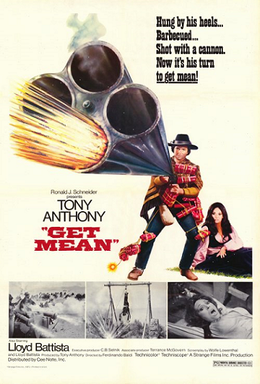
Get Mean, also known as Beat a Dead Horse, Vengeance of the Barbarians and The Stranger Gets Mean, is a 1975 Italian-American Spaghetti Western film directed by Ferdinando Baldi and starring Tony Anthony, Lloyd Battista, Raf Baldassarre, Diana Lorys and Mirta Miller. It is the final sequel to A Stranger in Town, with Anthony reprising the role of "The Stranger."

The Stranger Returns also known as Shoot First... Laugh Last!, is a 1967 Italian-West German-American Spaghetti Western film directed by Luigi Vanzi. It is a sequel to A Stranger in Town.

The Silent Stranger, also known as The Horseman and the Samurai and The Stranger in Japan, is a 1968 Spaghetti Western jidaigeki film directed by Luigi Vanzi. It is the second sequel to A Stranger in Town, with twenty minutes excised for its 1975 release. The film is the third in a series of four western films starring Tony Anthony as "The Stranger". Despite being produced in 1968 for MGM, the film was never given an official release until 1975, nearly a decade after the previous film in the series. Tony Anthony stated that he believed the film became the victim of a power struggle at MGM, and the film was re-edited when it was later released by a different studio.

















